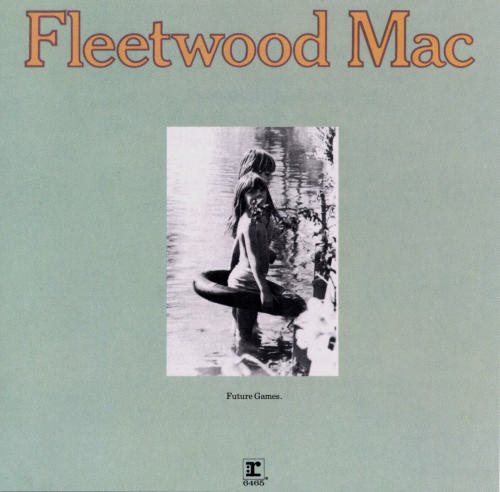
Future Games (1971)

1. Woman of 1,000 Years
2. Morning Rain
3. What a Shame
4. Future Games
5. Sands of Time
6. Sometimes
7. Lay it All Down
8. Show Me a Smile
By the time Future Games arrived in 1971, Fleetwood Mac had officially drifted into the fog of musical reinvention. Their last tenuous link to the blues-drenched origins of the group, Jeremy Spencer, had vanished in truly bizarre fashion—having nipped out “to visit a bookshop,” only to reappear as a member of a religious cult. It would be comical if it weren’t such a defining moment in the band’s erratic evolution. Peter Green, who’d left the year prior, was temporarily coaxed back to help complete the tour, but his presence was fleeting and increasingly otherworldly.
What emerged next was Future Games, an album that jettisons almost every trace of the band’s earlier identity in favour of something more ethereal, introspective, and thoroughly Californian in spirit—even if it was recorded in Hampshire. To replace Spencer, the band recruited American guitarist Bob Welch, whose style was less Elmore James, more Laurel Canyon. Also newly promoted to full-time member was Christine McVie, who had hovered around the edges since Kiln House. Together with Danny Kirwan, the trio forged a sound that would steer the band away from its erratic blues-rock past and toward a hazier, more melodic future.
There is, it must be said, a palpable sense of cohesion to this album that had eluded its predecessor. No longer searching for identity, Fleetwood Mac had committed to transformation. The result is an album that drifts comfortably in the soft-focus haze of early ‘70s introspection, complete with pastoral production and meandering instrumental passages that suggest long evenings, scented candles, and shared acoustic guitars.
Welch's debut composition, the sprawling title track Future Games, is arguably the album’s centrepiece. At eight and a half minutes, it sets its own pace—meditative, meandering, and entirely uninterested in blues structures or hit potential. It’s a strange and quietly hypnotic affair that speaks volumes about where the band was headed. Welch’s voice—detached, almost whispery—is a far cry from Green’s raw intensity, but it works here, enveloped in the gentle swirl of layered guitars and soft keyboards.
Danny Kirwan, increasingly the band's secret weapon, contributes some of his finest work. Sands of Time is exquisite: a flowing, melodic wash of guitars and gentle rhythms, with a chorus that rises like morning mist. Woman of 1,000 Years is equally strong, its cyclical guitar motif and melancholic mood capturing Kirwan’s distinct blend of fragility and invention. These are songs less about narrative and more about atmosphere—and they succeed brilliantly on those terms.
Christine McVie, now fully on board, brings with her the blend of grounded pop sensibility and emotional resonance that would come to define so much of Fleetwood Mac’s future success. Her closing ballad Show Me a Smile is tender and subtly haunting—hardly her most famous song, but one of her earliest triumphs. Morning Rain, a more upbeat number, shows her growing command of the band’s new sonic palette, even if it feels a touch underdeveloped.
Not all the material lands with the same confidence. Sometimes contains all the right ingredients but somehow falls short—well-crafted but lacking the emotional spark that elevates the best of their work. What a Shame, a largely aimless instrumental jam padded with studio chatter, feels more like a rehearsal fragment than a finished track. Welch’s Lay It All Down tries to inject some grit into proceedings, but sounds more bluster than brilliance, its hard-rock aspirations slightly at odds with the album’s otherwise delicate mood.
Still, Future Games must be seen for what it truly is: not a stopgap, but a rebirth. That it succeeded at all is something of a miracle. With two of their most iconic members gone and the group’s identity up for grabs, Fleetwood Mac could easily have imploded. Instead, they leaned into change, embraced their vulnerability, and emerged with a sound that—while still finding its footing—offered something genuinely new.
For those clinging to the ghosts of the Peter Green era, this must have been a confounding release. But in hindsight, Future Games is a quietly pivotal moment: the first confident step toward the melodic richness and internal complexity that would define the band’s most celebrated work. The blues were gone. Something more nebulous, and possibly more lasting, had taken root.
Go back to the main page
Go To Next Review